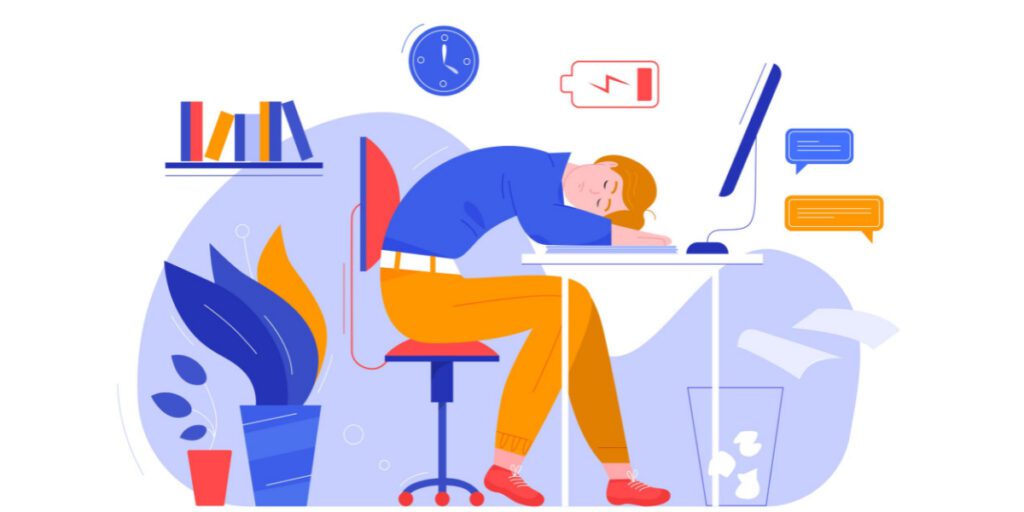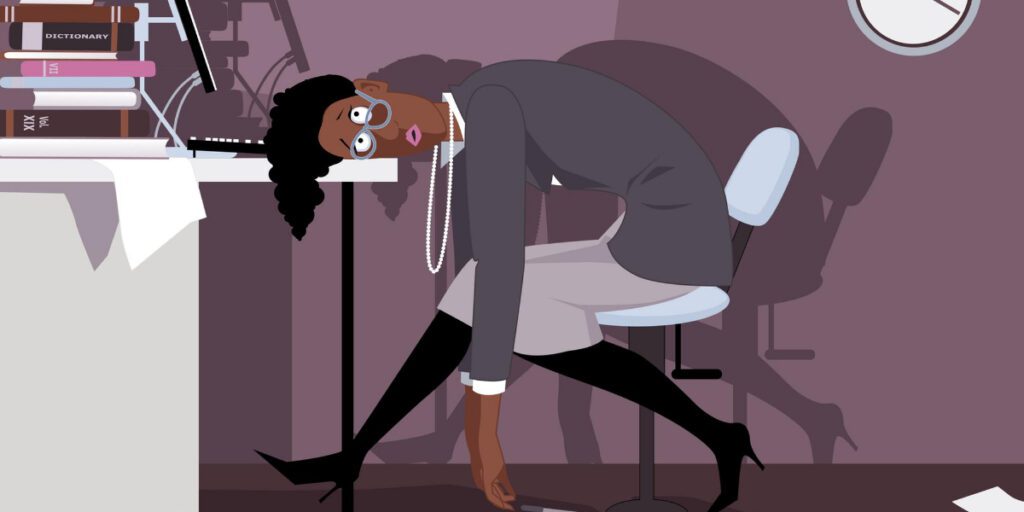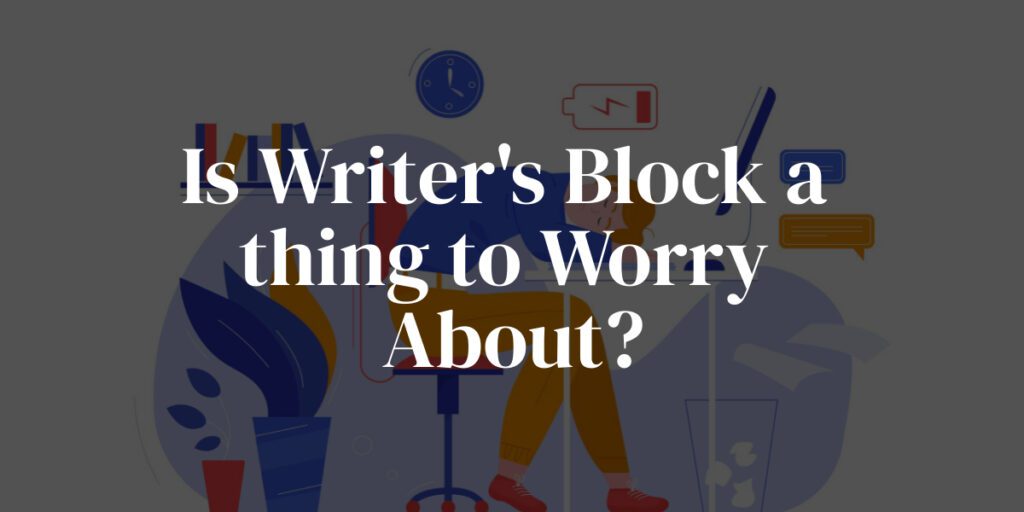While many have argued that writer’s block is not a real thing (obviously, they have never truly written before), others say it is real and occurs, especially to writers who write to earn and have deadlines to meet.
Primarily associated with writers or creative people, writer’s block is a subjective hypothesis, and quite frankly, it depends on which side of the argument fence you are on.
As we try to understand this inability for the brain to zone into its creative space, let’s look at this scenario.
Table of Contents
Toggle
What is Writer’s Block?
We will look at writer’s blocks from two perspectives.
Have you ever found yourself in front of your typewriter, laptop, or blank paper? If you have written, then yes.
However, you cannot seem to write because you are stuck and as blank as the screen or sheet before you.
Secondly, you can visualise the ideas. They are right before you. However, you cannot find the right words to explain these thoughts or pen them appropriately.
Ever happened to you?
This is writer’s block, and almost all writers suffer from it at some point in their life. While it is a sign to take a break, repeated occurrences are detrimental to your writing career.
Merriam Webster defines writer’s block as: “a psychological inhibition preventing a writer from progressing with a piece”.
There is a science to writer’s block.
Science claims the frontal lobe is associated with language creation. The Broca area accords writers the ability to create or brainstorm about stories, a skill quintessential to every writer.
However, located in this region is the anterior cingulated cortex, responsible for several cognitive functions, including emotions, mood, attention, and the ability to associate or dissociate unrelated concepts? The anterior cingulated cortex is also the part of the brain responsible for speaking, memory, remembering, and writing.
While science is still trying to understand what triggers writer’s block related to the brain, we have a question.
Could it be burnout?

What causes writer’s block?
We generally do not associate burnout with writing, writers, or creative processes. However, if a region of the brain carries out all the creative abilities you are known to exhibit, it is bound to get exhausted. It is not unusual to see writers struggle to get the perfect expression of their thoughts in a script. However, the soul-crushing torment suffered by writers as writer’s blocks destroys their self-esteem and creative output.
So what are the causes of writer’s block?
There are several reasons why writer’s block happens. Defined as a psychological inhibition by Merriam Webster, the following explains the science of it.
Two Yale psychologists, Michael Barrios and Jerome Singer, associated writer’s block with emotional dysregulation and categorised it into four:
- Anxiety and stress: the writer is tired, stressed and does not believe in their piece or their ability.
- Anger and irritation — the writer is angry that their creative work was not appropriately acknowledged or noticed.
- Apathy – being concerned about deadlines, which dampens their creative spark and ability to translate their thoughts correctly.
- Hostility and disappointment – these authors believe they are better than others and do not want their work to be compared.
Overall, these psychologists summarised the single cause of writer’s block to being UNHAPPY. Negative emotions hamper the writer’s creativity, preventing them from being productive and shackled to a point.

How to overcome writer’s block?
So many have said, “Just push through it”, it is a piece of good advice, but overcoming writer’s block is, as mentioned, subjective and an exploration of one’s inner self is crucial.
According to Michael and Singer, “low levels of positive and constructive mental imagery” is a problem associated with writer’s block.
The following are some external causes for writer’s block and how to avoid writer’s block?
Stop the self-criticism
Are we our own worst enemy? Criticism is not a positive mental image of our capabilities as writers or self. While you need to motivate yourself out of your ‘lazy place’, casting shadows will not help. Self-criticism blocks the creative process and prevents you from accomplishing even the simplest of tasks.
Overcome Strategy – accept, repeat, and move on – you are good in your own right. Secondly, avoid comparing your work to another writer. It is easier said than done, truly, but even if a writer writes in the same genre as you, there is that thin line that makes you unique. While striving for the best, put your best foot forward, or in this case, best words first.
Fear
I do not think anybody is more afraid than writers. Besides battling with their weird and creative imagination, the fear of envisaging that your hard work and the written idea could be slaughtered by the press, writer’s guild, and the public is enough to induce writer’s block. As a writer, you will be judged; it comes with the territory. Your work will be rejected; it is part of the job, and a publisher will probably curse out your skills, and it is part of it.
Remember, fear is okay, but if it prevents you from creating and writing, it is a problem.
Overcome Strategy: Be open-minded and expect the worst even when you have the best content. This way, you are not thrown into shock when someone says something nasty.
Secondly, take criticism with a pinch of salt. Rather than curl back and allow your thoughts to overwhelm your creative capabilities, go back and reassess your work again.
Progress over perfection
Perfectionism is one reason for writer’s block. It is natural to push beyond the acceptable boundary of delivering a good piece, but perfection is a humbling wall that many writers fail to see. Writing is not a first-is-the-best kind of job; you have several opportunities to reverse and get the best out of it. While perfection is a cloak that masks harsh critics and failure, if it stops you from making progress, it is dangerous. So attempting to write the perfect sentence, paragraph, page, and so on may prevent you from writing even a single word.
Overcome strategy: if perfectionism is the reason for the writer’s block, then remind yourself you have plenty of edit time, and this is just a draft. Additionally, it is necessary to also see that your pursuit of perfection could be the reason for failure.
After all, if you miss the deadline, then you are incapable regardless of your creative prowess.
You do not feel like writing.
In all fairness, as much as it is a passion, writing is a chore. It is hard work and a tedious, time-consuming one too. As a writer, you must not feel like writing all day, every day. If you feel like taking a break, by all means, shut the laptop, cover the typewriter, and put the papers in the drawer.
Overcome strategy: Relax and let your mental consciousness play out any thoughts impeding your desire to write. Take a break and do something not related to writing, like bird watching or something else.

How to get past writer’s block?
And you are here. Your muse is gone. You cannot seem to think clearly or stop your thoughts from the rollercoaster ride in your head.
The worst is that you have a deadline to meet, and you have not penned a word yet – writer’s block.
Whether you are trying to deal with it or move past the situation, the following should help.
The 30-minute time off
This is a simple technique that allows writers to note events or objects that distract them during writing. As a writer, the focus is fundamental to eliminating writer’s block. However, if you are carried away by thoughts and situations that add no value to the writing process, you will soon get stuck.
The 30 minutes off is a self-evaluation challenge where you list out everything that causes a distraction. You are to go through them one by one and devise plausible methods to eliminate those distractions in the future.
Assuming you write with your typewriter and the tapping is distracting, change the method; try writing with a computer or pen & paper to remove this distraction. Repeat the process on your writing days until you find the right ambience for your writing. It also calms you become as each distraction is eliminated.
The Pomodoro technique
Time management is the biggest reason for writer’s block and delays. The Pomodoro technique by Francesco Cirillo is a tool to help writers focus uninterruptedly on a particular task for 25 minutes.
It is giving your brain undivided attention to finish a task without any distraction. You get five minutes to relax and move over to another task. The Pomodoro technique allows the writer to beat procrastination, improve focus and concentration, and meet deadlines without pressure.
The Pomodoro technique allows the writer to take a longer break after successfully completing 4 sections of 25 minutes and 5 minutes rest.
The Imaginary friend conversation technique
Okay, kids are not the only ones allowed to have imaginary friends; writers too should. Often, writers are caught up in the technicalities and structure of trying to deliver the perfect piece. Having an imaginary friend is one way to ease the tension associated with writing as it enables you to air your thoughts aloud about the content you are working on. If imaginary friendship is not your thing, then discussing with a friend that understands your passion as a writer is best.
How to deal with writer’s block?
There are countless ways to deal with the onset of writer’s block, including:
Curse out your feelings
If you feel frustrated that things are not working, curse it out any way you want. Sometimes the reason for the block is an inability to fully express in totality the emotions you are battling with inside.
So the next time you start to feel the writer’s block coming on, curse it out.
Do something different
Writing continuously for hours can take a severe toll on your mental, physical and emotional health. Rather than get dragged into the writer’s block underworld, take a break and do something different. Maybe a cup of coffee, smelling the flower and watching the clouds, anything but writing, will help.
Exercise
Stress and anxiety are triggers of writer’s block. Exercise has been shown to curb stress, increase positive feelings, focus and memory. It encourages the production of brain cells and boosts your imaginative capability.
Meditation
Whether yoga or reciting a mantra, meditation induces calmness, focus, and productivity. It also tames raging thought processes.
Free write your feelings.
There are no limits to what you can do with this step. Just like journaling, free writing how you feel at the moment when you experience writer’s block can jog your memory back to form. Freewriting allows you to process your thoughts without care, without editing, and outside the rules of writing.
Pick a do-nothing day.
We cannot stress this enough. Your mental capacity needs to rest and be away from the factors that could trigger writer’s block. On such a day, allow your mind to travel above and beyond but do absolutely nothing. This reboots your brain and boosts your imaginative and creative processes.

Writer’s Block Inspiration
The inspiration to beat writer’s block can come from anywhere, but these are some tips to make it happen.
Write for yourself
This is crazy but true. Trying to figure out what the readers want, how they will react, or what will trigger a reaction can lead to writer’s block. Remember, while you are a writer, you are also a reader – the reader. For once, write from your perspective and answer the above questions above as you do.
Change the scenery
Is your favourite writing spot by the window overlooking the garden? Change positions every couple of days. This scenery switch will clear your head and bring new ideas and inspiration into your life.
Go hiking or take a nature trip.
You are not hiking for exercise but taking your brain on a journey to loosen up and be free to accept information again. Hiking and nature trips are a cleansing process that helps you to forge ahead in challenging times.
Re-read the entire process
If you are writing for a client or company, choose a day to go through the brief again. Secondly, go through the book, and do not worry about mistakes, grammar, or tenses; just read.
Bottom Line
In conclusion, writing is hard. It is a passion that burns so intensely, but without control, it will burn you out. Writer’s block is a thing in the writing world. How you decide to deal with, accept, and overcome it is entirely up to you. Whether you believe it or not, there are moments when a creatively talented writer draws a blank too.
When you acknowledge the truth, you will find the best solution to help you overcome writer’s block.
Related posts:
- 3 Tips to Become a Successful Affiliate Marketer
- 8 Tips on Choosing a Profitable Affiliate Marketing Program
- How Long Does it Take to Write an Article? Discover Top Blogging Tips
- Discover 8 Things To Do To Make Money At Home
- How Much Money can you Make with Affiliate Marketing, and How does it Work?
- What Is writer’s Block? 18 Tips To Overcome Writer’s Block




